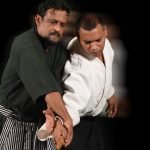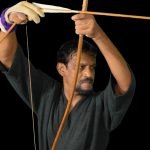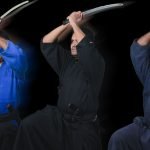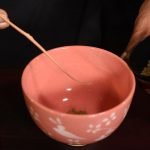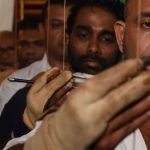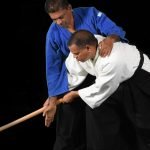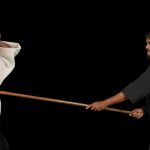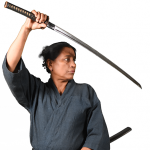About Us
Who is Sensei
Keerthi Wickamarathne?
Sensei Keerthi is the pioneering mind behind Budo Sri Lanka.
The Adventure Begins!
In 1976, when he was a student studying to sit for GCE A/L, Keerthi Wickamarathne enjoyed action movies in his free time, particularly the ones based on martial arts. Knowing his interest, a family friend introduced him to a martial arts teacher in Sri Lanka.
Master G. A. T. Livera (Shotokan Karate) was one of the pioneers to introduce martial arts to Sri Lanka. With his guidance and under the Matara branch chief legendary master Jayantha Munasinghe young Keerthi started his journey to the world of Martial Arts.
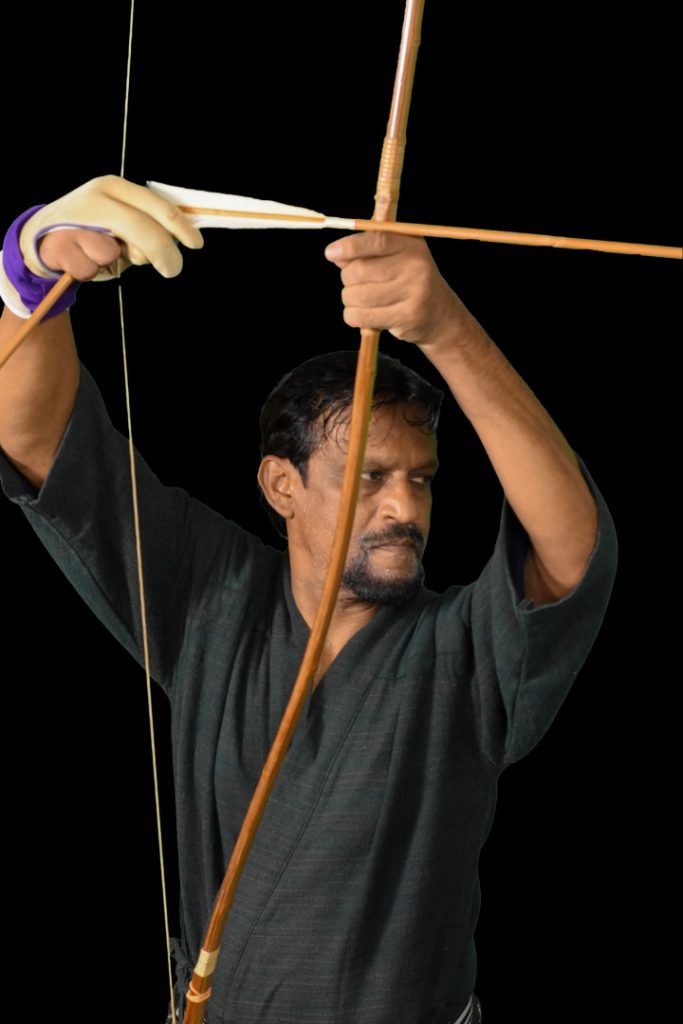
The Next Chapter
After years of practice, he moved on to continue his higher education in Colombo.
Pursuing his passion, Keerthi joined the Colombo branch at the fort cargo hall. In 1981, he earned the black belt and Master Livera promoted him to a teacher in Embilipitiya.
Due to the rapidly growing economy based on the gem industry and agriculture, the youth of the city were under immense pressure having to shoulder the modernization of their lifestyles. In their search to gain a boost of confidence, they found themselves at Sensei Keerthi’s dojo.
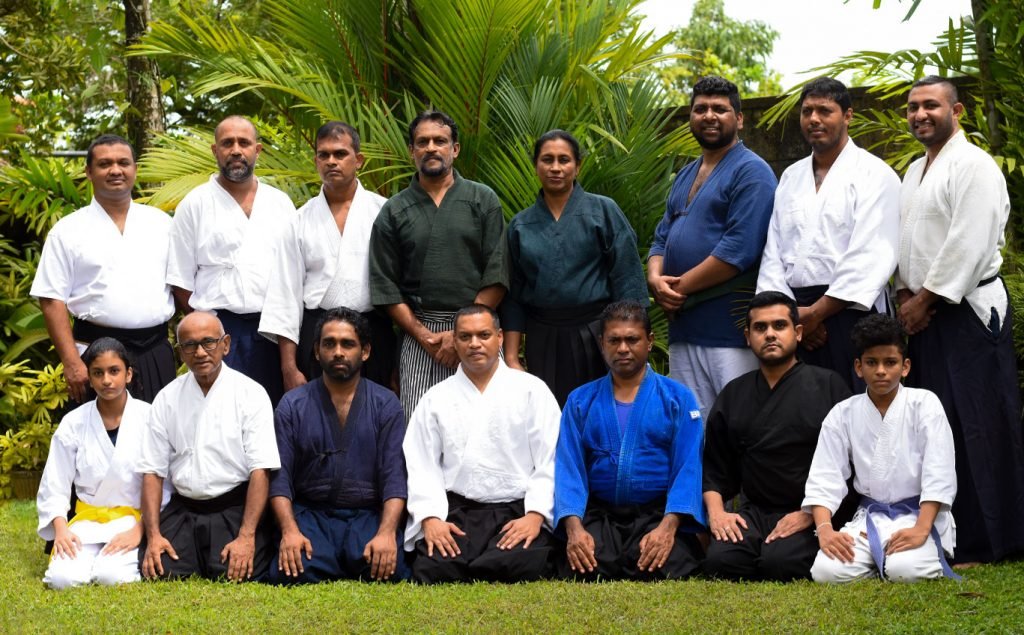
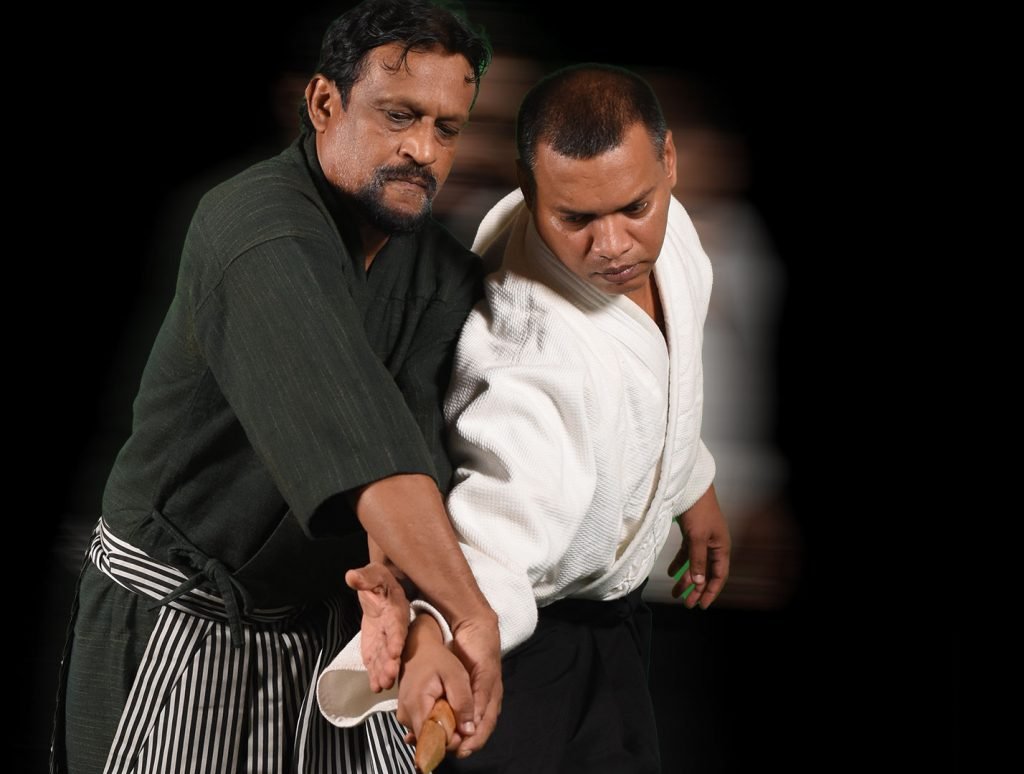
Growing Legacy
Sensei Keerthi – as a teacher – continued to train his students with regular training regimes while developing discipline and endurance while raising the students to become the best versions of themselves.
A Trip to Japan
In 1989, Sensei Keerthi visited Japan to explore true Japanese martial arts “BUDO” with his colleague of Karate, Sensei Praja Nanayakkara and sat for the enrolment exam at the Ki Aikido Instructors school in Tokyo.
They qualified to enroll in the full-time program of Ki Aikido and Shin Shin Toitsudo(Mind and Body Coordination) and Keerthi was later joined by his fiancé Lalani Nadakanda, a sports and physical training teacher in the education ministry. In 1992 all of them graduated and Keerhi sensei and his wife Lalani continued the post-graduate course till 1996 under Sensei Kochi Tohei (10th Dan, black belt in Aikido) at the Ki Aikido headquarters at Tokyo, Japan. Their teachers were the highest-ranking panel of experts including Kochi Tohei sensei, Maruyama sensei, Otsuka sensei, Kataoka sensei, and William Reed sensei.
In the same time period, Sensei Keerthi and Lalani both joined Tokyo Kyumeikan Dojo under Sensei Akira Kubo to follow Kendo. They also learned Iaido and Jodo under Ichikawa sensei. This included the Samurai culture and the practices of Kendo, Iaido, and Jodo.
During the years 1990-1997, both Sensei Keerthi and his wife graduated in all subjects. In 1996, they claimed the record of being the members with the highest number of ranks at the Kyumeikan Dojo in one year., and to this day, that record remains unbroken.
At the same time, the sensei utilized his weekend to perfect the art of Kyudo under Sensei Ono Tadashi.
Among the plethora of things they learned within these years, the most prominent were mind and body coordination, Kiyatsu therapy, and Ki meditation.
During their time in Japan, they witnessed the actual reason for the development of Japan. It was none other than their culture, with the age-old Samurai culture woven into the very core of it, bringing perfection to every aspect of life with discipline and precision.
Beginning of Budo Sri Lanka - A promise of a cultural revolution
Returning to Sri Lanka in 1997, Sensei Keerthi aspired to share the wisdom he earned during his time in Japan. Thus Budo Culture Research and Training Institute in Sri Lanka was opened by Sensei Keerthi, Sensei Praja, and Sensei Lalani. After Sensei Praja went abroad to resume his work as an instructor, Sensei Keerthi and Sensei Lalani continued the dojo.
Samurai culture consists of a code of conduits and ethics. Staying true to the values they learned, Sensei Keerthi and Sensei Lalani introduced the dojo concept rather than going for the usual common style training center. The goal of the dojo training is to propagate respect, truth, and peace among all.
Rules and regulations in a Dojo are different. The desire to share the Japanese experience with Sri Lankan students with authentic Samurai touch was the force behind the dojo concept they introduced.
Budo Sri Lanka promotes peace, harmony, and prosperity among one and all. A place where everyone can gather and grow themselves without discrimination.

